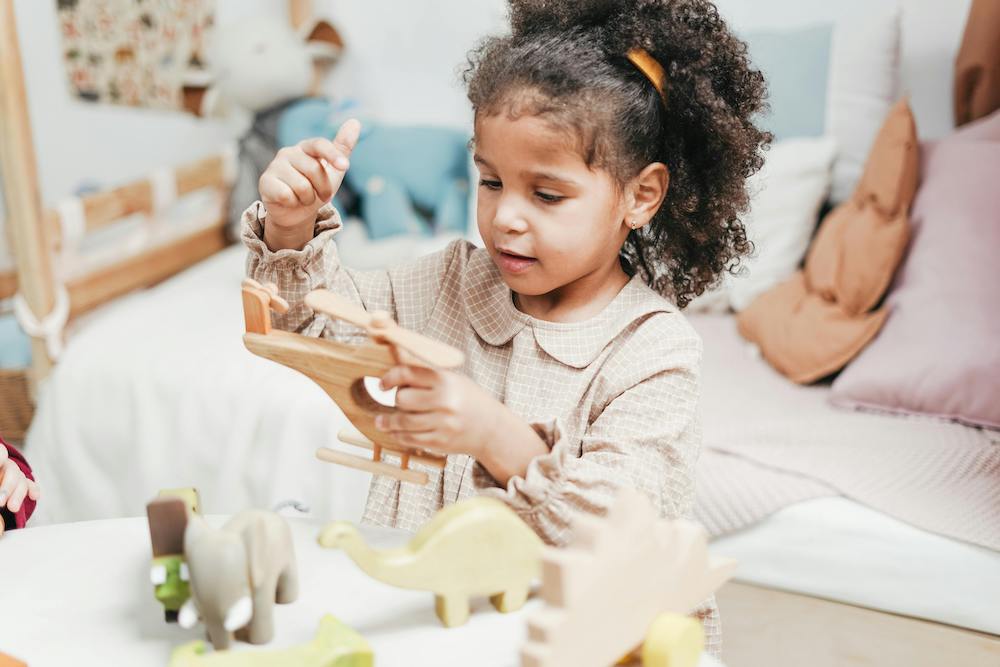Play therapy is a powerful tool that helps children work through their emotions and experiences. It provides a safe and structured environment where kids can express themselves through play, which is their natural form of communication. Here are five important things your child learns in play therapy.
1. Emotional Expression
In play therapy, children learn how to express their emotions. Many children find it difficult to talk about their feelings. Play therapy uses toys and games to help them show what they are feeling. For example, a child might use dolls to act out a scenario that makes them upset. This helps them express emotions they might not have the words for yet. Over time, they get better at recognizing and naming their feelings, which is a crucial step in emotional development.
2. Problem-Solving Skills
Children often encounter challenges during play. In play therapy, they learn to solve these problems in a safe environment. A therapist might present a puzzle or a game that requires problem-solving skills. As children work through these activities, they learn how to think critically and come up with solutions. This skill is transferable to real-life situations, helping them navigate challenges at home or school.
3. Social Skills
Play therapy often involves interactions with the therapist or other children. Through these interactions, children learn essential social skills. They practice taking turns, sharing, and communicating effectively. For instance, if two children are playing together, the therapist might guide them on how to resolve a conflict over a toy. These lessons in social interaction help children build better relationships with their peers and adults.
4. Self-Confidence
As children successfully navigate play activities, they build self-confidence. Completing a challenging puzzle or effectively expressing their feelings gives them a sense of accomplishment. This boosts their self-esteem. Over time, they become more confident in their abilities and are more willing to take on new challenges. This growing confidence can positively impact many areas of their lives, from academics to friendships.
5. Coping Mechanisms
Play therapy teaches children healthy ways to cope with difficult emotions and situations. The therapist might introduce specific toys or games designed to help children deal with anxiety, anger, or sadness. For example, a child might learn to use a stress ball when they feel anxious. These coping mechanisms are valuable tools that children can use outside of therapy to manage their emotions effectively.
Clinical Insights
As a parent, it’s important to understand the benefits of play therapy. Here are a few clinical suggestions to help you support your child’s therapy process:
- Encourage Expression at Home: Provide your child with opportunities to express their emotions through play at home. This could include drawing, role-playing, or using toys to act out scenarios.
- Be Patient and Understanding: Emotional development takes time. Be patient with your child and understand that they might need time to process their feelings and experiences.
- Communicate with the Therapist: Stay in regular contact with your child’s therapist. They can provide insights into your child’s progress and suggest ways to support them at home.
- Create a Safe Space: Ensure your child feels safe and supported at home. A stable environment can greatly enhance the benefits of play therapy.
- Model Healthy Coping Mechanisms: Children learn by watching adults. Model healthy ways to cope with stress and emotions, so your child can learn from your example.
Next Steps
Play therapy is an effective way to help children develop crucial emotional and social skills. By learning to express their emotions, solve problems, interact socially, build self-confidence, and develop coping mechanisms, children can navigate their world more effectively. As a parent, supporting your child through this process can make a significant difference in their overall development and well-being. If you think your child could benefit from play therapy, please contact my office so I can lead you and your child on this journey!

